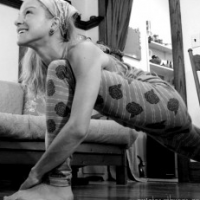After a summer—terrifying with its heat—I’ve lately been giving a lot of thought to extinction.
And, yes, I’m a member of The Wilderness Society and I donate money, sign petitions and protest against furthering our never-ending quest for developing every last bit of human-free space out there—but that’s not the sort of extinction I’m talking about.
I’m talking about an extinction of our very own. And, really, would that be such a bad thing?
Certainly not for the planet and certainly not for the species we haven’t yet encroached upon to the point of their permanent vacation. But, yes, I can see how it could be a problem for us. But don’t we deserve it, just a little bit? Or, at the very least, don’t we deserve an extinction scare of our own? I’m thinking, to put it as my grandfather would have, that we’ve gotten too big for our britches. Or, in other words, we could do with a little ego-diet.
So how exactly did we get here? First we were hunter-gatherers. Okay, that’s cool. We took what we needed and moved on (just like any other animal). But then we decided we needed to cultivate the land, to stay in one place. Okay, so far, so good.
The problems began, however, when we decided that land must produce for ourselves and ourselves only (never mind that other animals had been using the same land for eons—how were they supposed to know that boundaries had been drawn?).
Suddenly, land became a commodity. So, we shot the birds who fed on our crops. But then the bugs (on whom the birds also fed) began feeding on our crops and, in the absence of the birds, became so over-numbered, we had to resort to poisons.
Photo: Antonio MachadoEnter the monocrop.
Where in nature can you find only one species of plant, acre after acre? You can’t.
Evolution celebrates biodiversity for a reason: in order to be happy and healthy, we must co-exist with other species. The soil is as much alive as we are and—if fed the same nutrients at the expense of others—it will die (as, so too, would we). We’re finding this out the hard way, after a summer of drought, as entire monocropped farms are cashing in their insurance policies.
It is, apparently, human nature to better our situation. For generations this has meant a single-minded ownership of the land with little regard to other creatures and ecosystems.
But what have we gained, really? Sure, I can drive across town in seven minutes or across the country in two days. Who cares? What does that get me? An extra two days and seven minutes at the end of my life? And what will I do with that? Probably, if not conscious of that extra time, spend it in line at the grocery store or the DMV.
Here’s the question: do these conveniences add to the experience of the first fall day? The first snowfall? The first wave of the seasonal migration of Canadian geese?
Every species evolves. Every species dies. We are not excluded from that inevitability, despite our expectations.
We are part of this community of wild things—by this mere fact of life and death, we share a kinship with every other species on earth. Killing off our “pests” to make way for our “convenience” isn’t going to change the fact that we will, one day, cease to populate this earth. Those of us who care about things like this mourn every species that expires, be it bird, beast, pollinator or predator. For conservation to work, we need to make the shift in perspective from commodity to community.
Photo: Steve D.Had the funeral been ours, [these animals] would hardly have mourned us. In this fact…lies objective evidence of our superiority over the beasts.
~ Aldo Leopold
We do mourn these losses, which should tell us one thing: the fact that we mourn means that we have compassion and that compassion can be harnessed to save as much of our remaining wilderness (including that wilderness which supports us) as possible.
Editor: Lynn Hasselberger






Read 0 comments and reply